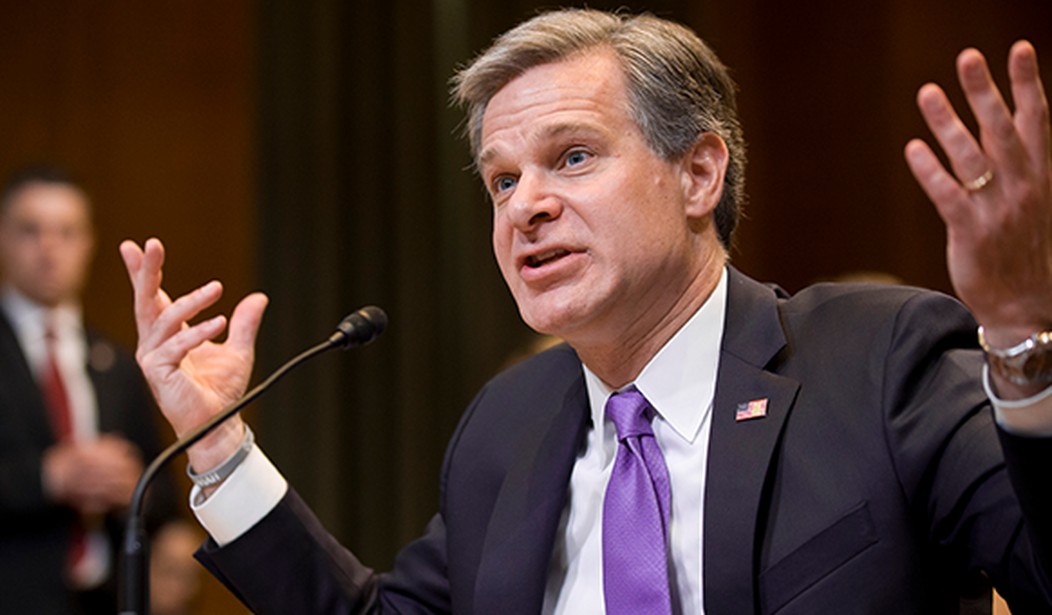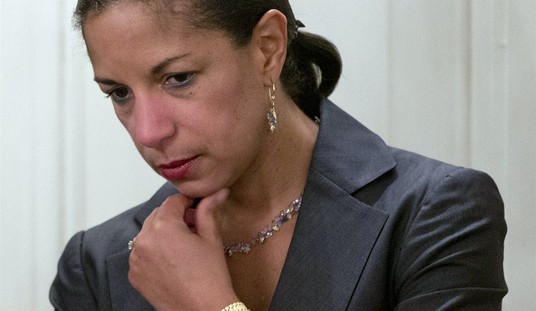Well, apparently, FBI Director Christopher Wray has no regrets about weaponizing the Bureau against Americans based on their political affiliations. The official faced questioning from House Judiciary Committee Republicans regarding allegations of targeting parents protesting at school board meetings.
While Wray agreed that there was no compelling nationwide law enforcement justification for Attorney General Merrick Garland’s directive to track threats against school boards, he refused to comment on whether Garland should rescind the memo or apologize to parents.
The director also defended the FBI’s conduct, stating that they followed long-standing rules and that threat tags were administrative rather than investigative tools. The comments came during an exchange with Rep. Kevin Kiley (R-CA) on Wednesday:
Kiley effectively backs Wray into a corner, by pointing to the evidence and testimony that Wray is attempting to use to dismiss this line of questioning, and forces Wray to actually give a direct answer.
KILEY: Well, actually, what they’ve shared with us points to just the opposite. You had for example a letter from Christopher Dunham, Acting Assistant Director in March of this year, where the FBI acknowledged that it has not observed an uptick of threats directed at school officials since it began tracking the data. Does that sound accurate to you?
WRAY: Yes sir.
KILEY: And is it also true that according to the FBI itself, none of the school board related investigations have resulted in federal arrests or charges?
Wray attempts to dissemble and filibuster.
WRAY: I think that’s correct. I think of the 25, and for context, you know that’s 25 umm—
KILEY: I’m sorry, I have limited time so if that’s correct, I’d like to move on. This committee’s investigation concluded that the Justice Department’s own documents demonstrated that there was no compelling nationwide law enforcement justification for the Attorney General’s directive, do you have any reason to dispute that conclusion?
Wray is once again required to give a YES or NO answer, allowing Kiley to lower the boom and effectively put Wray on the defensive.
WRAY: No.
KILEY: So, we had an investigation of parents, we had a sweeping mobilization of federal power against the most protected core First Amendment activity, the right of citizens to speak and petition their government on the most important of issues: the education of their children, and you are telling me that the entire basis for that, there was no evidence to support it?
WRAY: Well, I want to be clear, we, the FBI, as I said, were not and did not investigate people for exercising their First Amendment right—
Kiley fluidly brings it back to the discussion of AG Garland’s memo, and throws Wray even more off guard.
KILEY: Should Attorney General Garland rescind the memo?
WRAY: I’m sorry…
KILEY: Should Attorney General Garland rescind that memo?
WRAY: Oh, that’s a question for the Attorney General.
KILEY: Do you believe he should?
WRAY: Again, that’s a question for the Attorney General.
KILEY: Do you believe that the Attorney General should apologize to parents who are the subject of that memorandum?
WRAY: I’m not going to speak to that.
Kiley concluded his questioning by bringing it back to the actions of the FBI, who went along with the weaponization while saying they were just doing their job.
KILEY: Will you apologize for the FBI’s own role?
WRAY: I think the FBI conducted itself the way it should here, which is that we’ve considered, continued to follow our long-standing rules and have not changed anything in response to that memo.
So, there you have it. The FBI director is just fine with the Bureau labeling parents protesting at school board meetings as “domestic terrorists” just because they don’t like the material being presented to their children in the classroom.
Obviously, this raises serious concerns about the agency’s actions and the erosion of civil liberties. The Bureau’s willingness to target private citizens, even under flawed premises, is indicative of a corrupt and politicized agency. Furthermore, Wray’s lack of acknowledgment of any wrongdoing in this matter lends credibility to those, like myself, who argue that the government is unconcerned about protecting citizens’ natural rights.
One of the most troubling aspects of this controversy is the FBI’s targeting of private citizens. Parents attending school board meetings to voice their concerns about their children’s education should be able to exercise their First Amendment rights without fear of being investigated or labeled as threats for no valid reason. The apparent lack of evidence to support these investigations raises questions about the FBI’s decision-making process and the potential abuse of power. Even worse, the fact that the Justice Department colluded with a teacher’s union to write the letter asking for this label to be applied to parents is even more galling.
The case against the FBI’s actions targeting parents further highlights concerns about the agency’s integrity. The agency has clearly become politicized, pursuing agendas that align with the current administration rather than upholding the rule of law. Targeting parents simply for expressing their opinions on critical issues demonstrates a disturbing departure from the FBI’s duty to impartially enforce the law and protect citizens’ rights.
FBI Director Christopher Wray’s refusal to acknowledge any problems with the Bureau’s conduct is disconcerting but not surprising. He, like other members of the elite ruling class, knows that he will face no accountability for this fiasco or any other corruption at the Bureau. The question is: How much longer will we allow this to continue?












